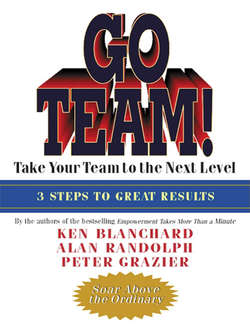Читать книгу Go Team! Take Your Team to the Next Level - Ken Blanchard - Страница 4
На сайте Литреса книга снята с продажи.
ONE
Understanding Next Level Teams a picture of your future
ОглавлениеYou’ve no doubt heard about teamwork and its importance in today’s workplace. Perhaps your organization has even tried to do more with teams and has preached teamwork.
But most people are much more familiar with the idea of a work group. It’s the front line of an organization where the product is made or the service is provided. The idea of work groups is based on a view of work that is rooted in the old notion of an organization with rigid lines of managerial control, authority, and responsibility. In other words, those in leadership positions tend to assume they should make most decisions about the work, and employees tend to assume they should do what they are told by the leaders.
WHY IS A NEW KIND OF TEAM NEEDED TODAY?
In today’s rapidly changing business environment, concentrating decision-making authority with a few people no longer gets the kind of results that are needed. Additionally, centralized decision making places an undue burden on those making the decisions and is frustrating to those who cannot act until the decisions are made. Communication in the traditional work system simply moves too slowly. Because decision making is slow, people are inhibited from taking action in a timely and responsible fashion.
With this approach to work, organizations cannot compete successfully, and people throughout the company feel they are not valued. The result is low motivation and low company performance. Moving key decisions closer to the front line makes good business sense. This approach is at the core of teamwork that gets great results. But it means operating in a new world for most people.
WHAT KIND OF TEAM GETS GREAT RESULTS?
To succeed in today’s complex and changing business environment, we must learn a new way of working in teams. We must take our teams to the Next Level. This means creating teams that release the power of team members – power that comes from their knowledge, experience, and internal motivation.
